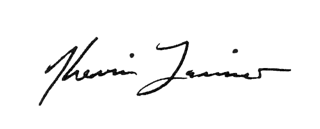Things Have Not Gone According to Plan
Of all the things I heard during my childhood in Wisconsin that could have stuck in my mind—of all the exclamations that might have formed a core memory—there is one above all that sends a shock wave through my nervous system when I recall it. Inevitably I heard this in the middle of the night, waking to the sound of my mother urgently whisper-shouting: The cows are out. To this day I don’t understand why they never pushed over a fence or found a loose strand of barbed wire in daylight. We had two dozen head of beef cattle, and they were free to graze a rotating series of fields and pastures surrounded by fencing that was susceptible to the vagaries of time and weather. A tree limb fell over the fence during a summer storm? The cows are out. A heifer leaned a little too hard on a rail to get at some apples? The cows are out. It was the rallying cry for everyone in the house—my sisters, my brother, my mother, and me—to throw on a jacket (over pajamas), jump into boots, and rush outside to take our positions and, with outstretched arms, prepare to herd a stray cow to the barnyard if it ran toward us out of the darkness. These were mostly Herefords, a couple of Angus, each weighing about 1,500 pounds. Did I mention it was country dark? You could feel the ground shake, hear the heavy bovine breathing, before you saw them. Perhaps it isn’t surprising that the experience is etched in my memory. All these years later, even my citified kids know what I mean when I use the expression the cows are out. Things have not gone according to plan. Take your positions, everyone, hold steady. After all this time, those words still hold weight.
I am thankful to Carla Panciera for the opportunity to remember this and other recollections while working with her on her essay “Family Farms and County Fairs: A Different Kind of Book Tour.” She knows what those cows meant to me and my family. I am grateful to every one of the thirty-plus contributors to this stellar issue, including the authors who shared the lessons they learned “the hard way” in our special section, Visions and Revisions: How Writers Learn Their Art. A number of those lessons came only after things went awry, such as Ann Hood’s bad review, Evie Shockley’s uncertainty, and even Isle McElroy’s response to praise. Sometimes you need the cows to get out, or the window to crack, or the pipe to freeze—sometimes you need the first draft to fail, the short story to resist you, or a reader to walk away—to understand what kind of writer you are, to learn what kind of writer you can be.







